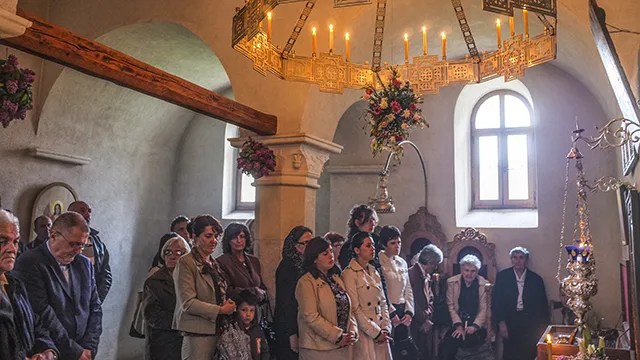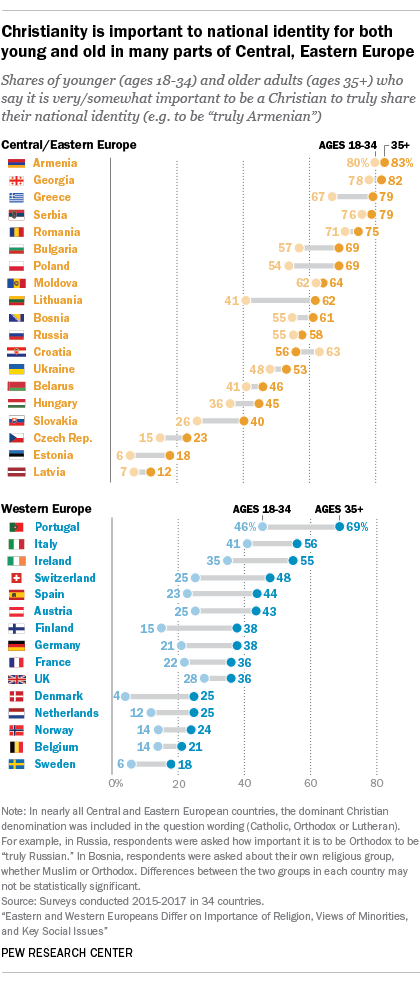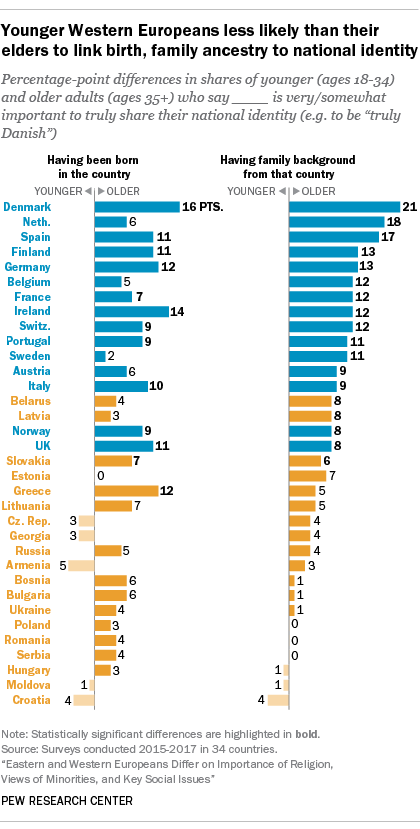
Young adults in many Western European nations are substantially less likely than older people to say that being Christian, being native to their country, or having ancestry there is important to national belonging – that is, to being “truly British,” “truly French,” and so on.

But in Central and Eastern Europe, there often are no such divides between young adults and older people. Indeed, in many countries in this part of Europe, people of different ages are about equally likely to say that Christianity, birthplace and ancestry are important to national identity.
In Russia, for example, 55% of adults under 35 say being Christian (specifically Orthodox Christian) is important to being truly Russian, roughly comparable to the 58% of older Russians who say this. And in Romania, similar shares of younger and older adults say being Christian (again, Orthodox Christian) is important to being truly Romanian (71% and 75%, respectively).
In Western Europe, by comparison, adults under 35 are considerably less likely than older people to view being Christian as important to national identity. In Finland, 15% of adults under 35 say being Christian is important to being truly Finnish, compared with 38% of older Finns who say this. And in Ireland, 35% of younger adults say being Christian is important to being truly Irish, compared with 55% of older adults who say this.

These patterns persist when Europeans are asked about more nativist components of national identity, such as the importance of having been born in their country and the importance of having family ancestry there. In Georgia, for example, about two-thirds of both younger and older adults say being born in the country is important to being Georgian.
By contrast, young adults in Western Europe are less likely than older people there to hold these views. In Germany, 39% of adults under 35 say being born in the country or having German ancestry is important to being truly German, compared with roughly half of older people who hold these views.
Furthermore, in several Central and Eastern European countries, there also is a significant difference between the views of younger and older adults on these issues. In Poland, for example, 54% of adults under 35 say being Christian (specifically Catholic) is important to being truly Polish, compared with 69% among older adults.
Still, Central and Eastern Europeans of all ages are generally more likely than Western Europeans to tie their views on national identity to Christianity, birthplace and ancestry. What’s more, the fact that the opinions of younger Central and Eastern Europeans on these issues are often similar to their elders’ views suggests that this regional difference may persist after older generations pass from the scene. In fact, younger adults in Central and Eastern Europe are often more likely than even older adults in the West to see religion and ancestry as important to national identity.

